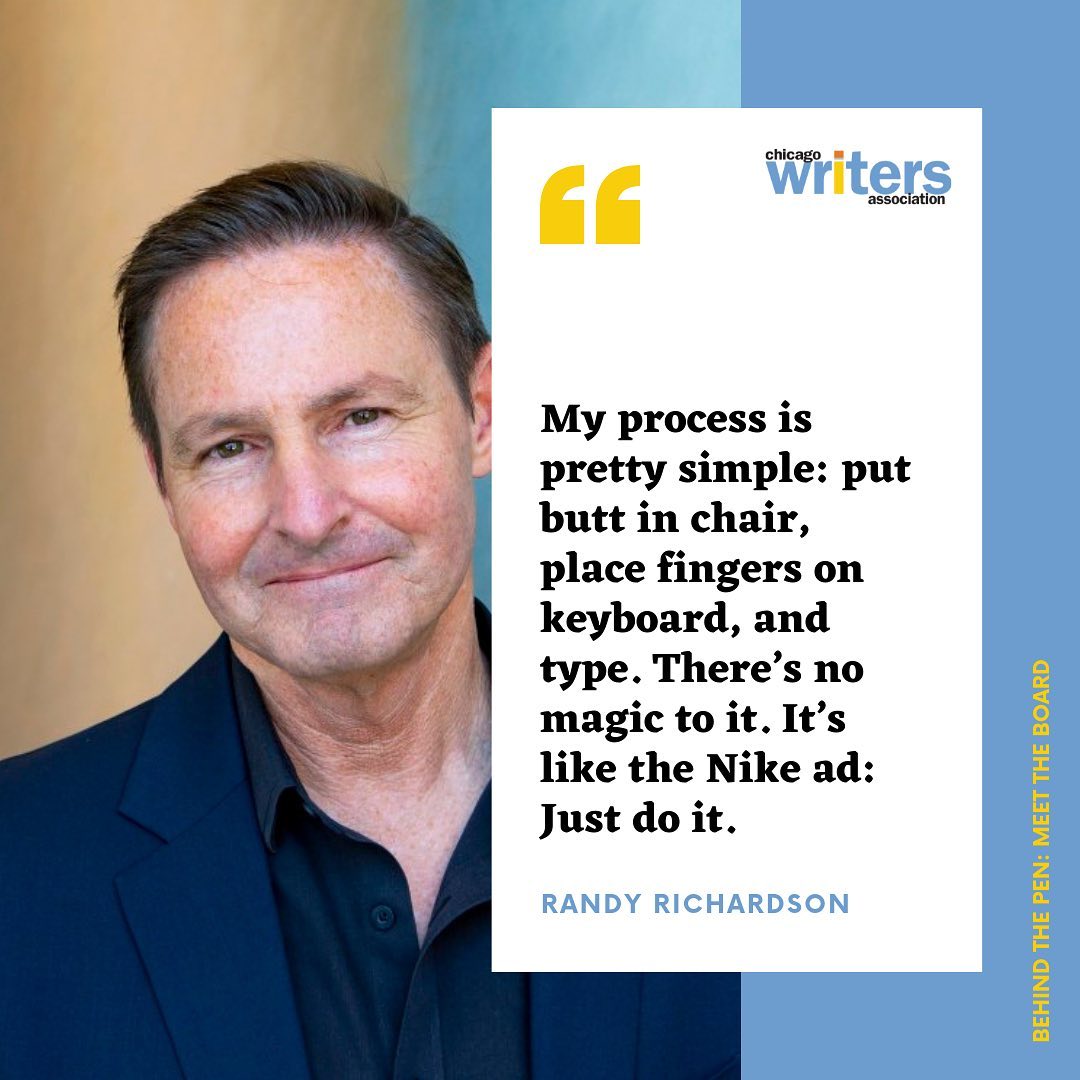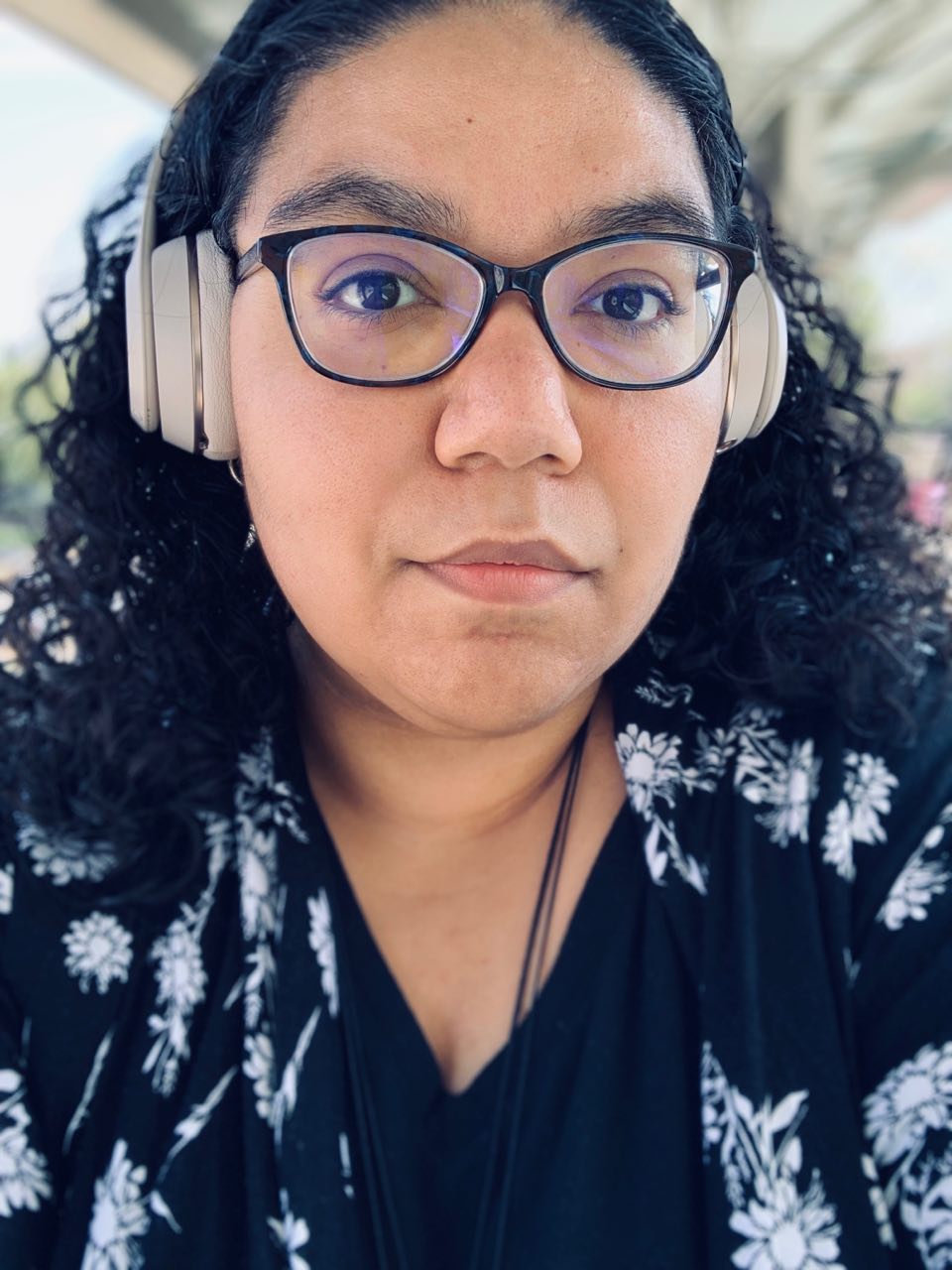August 13, 2019
Series: Meet the Board of Directors of CWA
by Christina Rodriguez
Interview with Randy Richardson, President of the Chicago Writers Association
 An attorney and award-winning journalist, Randy Richardson is a founding member and first president of the nonprofit Chicago Writers Association. He is the first male recipient of the National Federation of Press Women’s Communicator of Achievement Award and was named to NewCity’s 2019 “Lit 50: Who Really Books in Chicago” list. He is the author of two novels, Cheeseland and Lost in the Ivy, and coauthor of Cubsessions: Famous Fans of Chicago’s North Side Baseball Team, all from Eckhartz Press. His essays have been published in the anthologies Chicken Soup for the Father and Son Soul, Humor for a Boomer’s Heart, The Big Book of Christmas Joy, and Cubbie Blues: 100 Years of Waiting Till Next Year, as well as in numerous print and online journals.
An attorney and award-winning journalist, Randy Richardson is a founding member and first president of the nonprofit Chicago Writers Association. He is the first male recipient of the National Federation of Press Women’s Communicator of Achievement Award and was named to NewCity’s 2019 “Lit 50: Who Really Books in Chicago” list. He is the author of two novels, Cheeseland and Lost in the Ivy, and coauthor of Cubsessions: Famous Fans of Chicago’s North Side Baseball Team, all from Eckhartz Press. His essays have been published in the anthologies Chicken Soup for the Father and Son Soul, Humor for a Boomer’s Heart, The Big Book of Christmas Joy, and Cubbie Blues: 100 Years of Waiting Till Next Year, as well as in numerous print and online journals.
Richardson founded the Chicago Writers Association (CWA) in 2003 as a way of creating a literary space in Chicago where writers could come together and share their love for literature. As a published author and journalist, Randy is well-versed in the difficulties that writers face, and the CWA aims to provide tools and resources for writers of every kind. Through this initiative, he has contributed greatly in making Chicago the literary scene it is today.
Interview conducted by CWA intern, Meryl D'Sa
Meryl D'Sa, transplant from Mumbai, recently earned her MFA in Creative Writing from Florida Atlantic University, where she also worked as a graduate teaching  assistant and as the visual art editor and social media handler for the program’s literary magazine Swamp Ape Review. In her writing, she often tries to go beyond what feels comfortable in order to better understand herself and the world. She writes, she breaks form, she reads, she pets dogs, she lovers ginger wine and all kinds of peppers.
assistant and as the visual art editor and social media handler for the program’s literary magazine Swamp Ape Review. In her writing, she often tries to go beyond what feels comfortable in order to better understand herself and the world. She writes, she breaks form, she reads, she pets dogs, she lovers ginger wine and all kinds of peppers.
Meryl: What is your writing process?
Randy: My process is pretty simple: put butt in chair, place fingers on keyboard, and type. There’s no magic to it. It’s like the Nike ad: Just do it.
Q: How much time do you spend researching, planning, or world-building before you begin writing?
A: All my world-building, at least for my fiction writing, is in my head. My stories are all inspired by real-life events that become the seed that is planted there. The research and planning all come from life experiences. For example, I am currently working on a murder mystery set in Cuba. I’ve visited Cuba three times and will be making a fourth trip there in the fall. Those travels are my research and planning. They help to give color, depth, life, and realism to the story I’m telling.
Q: How do you balance work and writing?
A: It is a difficult balancing act and it involves more than work and writing. In my day job, I’m an attorney. But I also have a family, coach T-ball, and lead a writing organization. All these things demand time. It is a commitment and a setting of priorities. For example, this holiday weekend I’m giving up fireworks and won't be binge-watching season three of Stranger Things so that I can focus on writing. Eventually I’ll get back to the Upside Down, but perhaps not until I’ve reached the end of this novel.
Q: As a writer, what inspires you daily to continue writing?
A: For me, there are inspirations for what I write. I suppose I’ve been inspired by other writers. But I don’t think I could not write. It’s a part of me. The stories I write are always itching to get out of me.
Q: Have your inspirations changed over the years, or are they the same?
A: I think I’ve matured as a writer. I can see better what will work and what won’t. But the itch is always there.
Q: Every writer needs a few stars to align to help create good literary work. What resources do you work best with and why?
A: The one that I keep coming back to is the one that sits on my desk: Stephen King’s On Writing. Going back to my first novel, Lost in the Ivy, I was stuck and couldn’t find my way out. Then I read Stephen King’s memoir and it gave me the belief that I could extricate myself. I don’t know if I would have reached the end of that novel if it had not been for that book. So that’s what I always reach for when I feel stuck.
Q: What literary workshops or opportunities do you think have made you a stronger writer?
A: I’m largely a self-taught writer, but as president of the Chicago Writers Association, I attend several workshops, panels, and conferences on writing-related topics. I don’t think I can pinpoint any one that made me a stronger writer but I like to think that all of them together have done that. To me, just being around other writers and listening to their experiences inspires me to want to be a better writer and to keep working at improving my craft.
In that regard, CWA's third conference is coming up in March 2020, Let's Just Write! An Uncommon Writers Conference, that promotes the art, craft and community of writing, so it has it all.
Q: What made you decide to become involved in the writing community?
A: My personal story goes back to 2005 when I had just finished writing that first novel. I felt a little like the protagonist in my story: lost and confused. I started looking for writing groups and stumbled upon the Chicago Writers Association, which was then just a Yahoo! group. The more I became involved in that email group, the more I saw that I needed more of a real community. I came to see all the mistakes I had made with that first novel and when I set out to write my second novel I used all the resources of the community that I helped to build.
My second novel, Cheeseland, was written with the help and guidance of a critique group whose members I found through the CWA, and the book’s editor was someone I met through the organization. All the blurbs on the back cover came from people with whom I’d developed relationships through this community. Even its publisher came out of this network of writers I’d helped to create. It was just a better all-around experience that is 100 percent attributable to having a community around me that I didn’t have before.
Q: What is your favorite moment of being a CWA board member so far?
A: There have been many special moments, but I suppose if I had to choose just one it would be when my Board surprised me at our Book of the Year Awards two years ago with the organization’s first-ever MVP Award. That meant a lot to me. To me, it showed how we’d really come together as a Board and as an organization. I keep that award on my desk, right next to my computer so that I am always reminded of this community that has become such a big part of my life.
Q: What accomplishment in your writing life has had the most impact on you as a writer?
A: That would have to be the role that I’ve played in building this community of writers. Looking back to where we started, with just a steering committee of 13 writers, to where we are now, an organization of more than 800 writers, I’m just really proud of what we’ve been able to accomplish as a Board and as an organization.
Q: What was the major lesson you learned from it?
A: Delegation. That I don’t have to do everything on my own.
Q: Do you have an all-time favorite book that you just can’t forget about?
A: It is difficult to narrow it down to just one but if I had to pick that one book that I can’t forget about it would be Ernest Hemingway’s The Sun Also Rises. I’m a bit of a Hemingway fanatic, to the extent that I’ve followed his footsteps, from here in Oak Park to Key West to Madrid to Paris and to Havana. I’ve got a collection of all his Life Magazine covers and have read just about anything he ever wrote. The Sun Also Rises is the one that first captured me. The writing is so crisp and powerful and, at times, simply beautiful. It inspired me to want to write like him.

Christina D. Rodriguez is a New York-born Latinx poet and entrepreneur who provides freelance services in writing and design. Her writing has appeared in various online and print publications. She currently resides in Chicago and is on the board of the Chicago Writers Association. You can find her on Instagram @poemlust or on her site, The Write Queen.
Affiliates/Partners
Testimonials
Contact
Join CWA
Member Directory
My Account
Writers Conference
Presenters
Agents and Publishers
Pitch Sessions
Sponsors
Scholarships
Speaker Registration
Book of the Year
Spirit Award
First Chapter Contest
Resources
Home
Chicago Writers Association
info@chicagowrites.org
Make a Difference!

